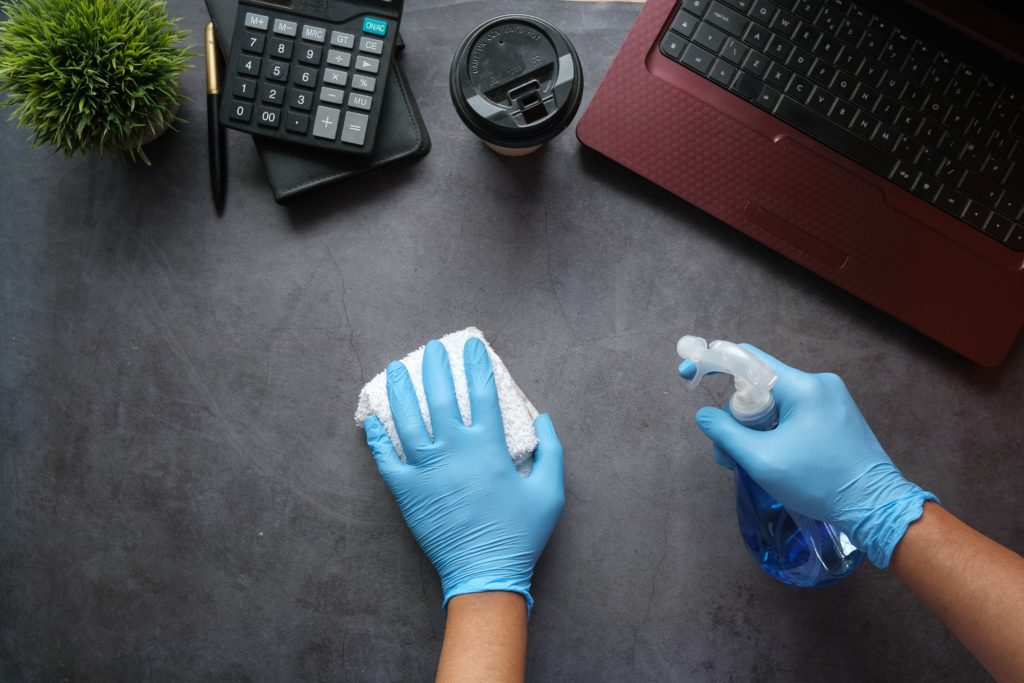When we think of endometriosis, we tend to think of it as a gynecological disease affecting the female reproductive system. However, multiple studies have shown that around 90% of women with endometriosis also have digestive problems. In fact, one of the reasons it can take so long to receive a proper diagnosis for endometriosis is that many women are first diagnosed and treated for IBS. With a percentage this high, this can’t possibly be a coincidence. Anyone who lives with endo should be taking this endo-gut connection into consideration.
If you are anything like me, you grew up thinking of our body’s systems as being like separate entities. We have our digestive system, we have our reproductive system, we have our respiratory system, etc. and they all have their own separate jobs to keep us alive and thriving. Right? To some extent this is true, however these systems are in fact all part of the same body and there are many instances where they do work synergistically with each other. There are definitely many instances where they can affect each other, which is what we are going to explore today.
Leaky Gut
Leaky gut is one of those terms we hear thrown around quite a bit these days, but what exactly does it mean? Well, first it will be important to understand a bit more about how the gut works. The interior of our intestines are covered with millions of fingerlike projections known as villi. This creates a huge surface area which allows for nutrient absorption from the food we eat.
In much of the intestine, the surface layer is made up of a single layer of cells called enterocytes. They are built to be close together, creating what is known as “tight junctions” which protects anything unwanted from finding its way through. Sometimes these tight junctions can become damaged or relaxed due to nutrient deficiencies, inflammation, stress, or even foods that irritate the lining. When this happens, food particles, bacteria, and other waste products can cross through the tight junctions and into the under-layer of the intestinal lining which is full of immune cells. In fact, around 70% of our body’s immune system lies in the gut!
This is known as intestinal hyperpermeability, or more commonly “leaky gut.” When these immune cells are triggered and detect invaders, it can lead to huge amounts of inflammation and even endotoxemia (endotoxins, or LPS, are released when bacteria die and can end up in the bloodstream).
Leaky gut may or may not actually show up as digestive symptoms, but it does have a downstream effect and hormone issues are one of them. Leaky gut has now been studied as one of the possible contributing factors of endometriosis due to the chronic inflammation and immune reaction it causes systemically. It is definitely a part of the endo-gut connection that should be thoroughly explored.
The Endo-Gut Connection: Trouble in Paradise
Every one of us, like it or not, has trillions of bacteria, viruses, and yeasts living in our gut. Yikes! But this is not a bad thing at all. In fact, we rely on this symbiotic relationship for our health. These microorganisms make up what is known as our microbiome and it is known to be very beneficial to our health.
A healthy microbiome is like a garden. It should be made up of a very wide variety of species. The ratios of certain species can make a difference to our health as well as where they live. The greatest abundance should live within our colon. These bacteria help to break down and digest foods that we can’t on our own, help to eliminate waste, and also have an effect on our immune systems. Remember those tight junctions in your intestines? These bacteria also act as a physical barrier to prevent the “bad stuff” from getting through and causing those immune reactions in our bodies.
What happens when this goes wrong? I’m so glad you asked! While our microbiome is crucial to our health, imbalances in our microbiome can create imbalances in our health as well. This is known as dysbiosis. This typically refers to an overgrowth of species that are NOT beneficial to our health and can lead to a host of digestive symptoms such as bloating, constipation, loose stools/diarrhea, gas, and even IBS.
Sometimes dysbiosis can be present even without these obvious digestive symptoms, showing up instead as brain fog, anxiety or depression, chronic yeast infections, fatigue, sugar or carb cravings, or sugar intolerance. It is also linked with many conditions including endometriosis as well as acne, anxiety, Hashimoto’s, infertility, PCOS, period pain, PMS, and more.

Endo Belly and IBS
We can’t have a discussion around the endo-gut connection without including endo belly and IBS! We talked about before how around 90% of women with endometriosis struggle with digestive symptoms. One symptom is so common that it has been given its own name, “endo belly.” This refers to bloating that can be very severe and painful. Women complain of looking 5 months pregnant when this bloating gets bad.
There is also a very strong correlation between endometriosis and IBS. Women with endometriosis are much more likely to be diagnosed with IBS and in fact, one study showed that 79% of women previously diagnosed with IBS were later diagnosed with endometriosis. Some of these can even be misdiagnoses since endometriosis itself can cause bowel adhesions which can affect digestion. Both endometriosis AND IBS share dysbiosis as a root cause that needs to be addressed.
How does all of this affect endometriosis?
Research has shown that dysbiosis as well as leaky gut play a part in both the onset and progression of endometriosis. Women with endometriosis have four to six times more LPS and gram-negative bacteria. This causes immune system dysfunction and leads to higher levels of inflammatory cytokines, leading to and perpetuating endometriosis.
When LPS come in contact with the ovaries, the local inflammation can work to suppress progesterone levels. This combined with high estrogen levels can also be a contributing factor to endometriosis.
So many women with endometriosis experience IBS, bloating, or other digestive symptoms and this was originally thought to be caused by lesions on the bowels.
What causes these gut problems?
There are so many factors in our modern society that can be contributing factors to this. For most women, it is likely a combination of several of the factors I have listed below.
For starters, our microbiome is “seeded” as an infant when we pass through our mother’s birth canal. With around one-third of births being cesarean sections, many infants are missing out on this opportunity. Breastfeeding is another early opportunity for developing our microbiome, but unfortunately formula is becoming more and more common.
Beyond that, many of us live in an overly-sanitized environment. Humans are meant to be around dirt and animals and be outdoors. Living mostly indoors, overuse of hand sanitizers, and avoiding getting dirty all have an affect on our microbiome.
Antibiotics are absolutely another factor here. While antibiotics can be life-saving and are well-warranted in many situations, they are also known to be over-prescribed. Overuse of antibiotics is a sure-fire way to kill off the beneficial bacteria in our guts.
In addition to that there are dietary factors at play, including consuming less variety of foods, a high amount of processed foods, toxins such as pesticides found in our food, alcohol consumption, artificial sweeteners, and potentially inflammatory food triggers such as gluten and dairy.

What can we do about this endo-gut connection?
As always, this is my favorite part! We certainly need to make ourselves aware of the issues at play, but beyond that we must always be looking for solutions.
The first thing I will say here is that if you have severe gut issues going on, working with a practitioner who is skilled in this area is important. There are some things we can do to work on our gut health on our own, but the endo-gut connection is complex.
A good place to get started is to focus on eating a wide variety of colorful fruits and vegetables. Leafy greens, carrots, broccoli, blueberries, you name it…eat the rainbow! But the kind found in nature of course!
Including healthy fats in your diet, especially Omega-3 rich foods is another good place to start. This includes fatty fish like salmon, mackerel, herring, and sardines as well as plant foods like flaxseed, chia seeds, and walnuts.
Butter or ghee are good sources of butyrate which provides nourishment for the beneficial gut bacteria.
Prebiotic and probiotic rich foods are another great thing to add to your plate! Prebiotic foods include jerusalem artichokes, garlic, onion, leeks, shallots, asparagus, fennel, cashews, pistachios, green bananas, and berries. Probiotic foods are fermented foods including yogurt, kefir, kimchi, sauerkraut, pickled vegetables, and kombucha.
In addition to this, staying well hydrated, eating in a calm, undistracted state, de-stressing, and getting plenty of sleep will also help bring your gut into the best health possible.
When to get additional support for the endo-gut connection
If you find yourself with severe ongoing gut symptoms and haven’t been able to find relief with diet alone, bringing in someone to help can make a world of difference.
Trust me, I know as women we like to think we can take on the world by ourselves. In many ways we can!
When it comes to supporting your gut, or supporting any sort of complex issue like endometriosis, you deserve to get the support you need.
Speaking from personal experience, going it alone can feel very lonely and isolating and scary and also leaves you in a space of suffering so much longer than you need to be.
If you are a fellow endo warrior, take some time to build a team around you for support. Consult with a skilled surgeon who specializes in endometriosis. For more on endo surgery, see my post on that topic here. I would just love to be your coach for all things nutrition and lifestyle. Let’s dig in and get to the root of any imbalances in your body. Just imagine all that you can do when you truly are feeling better!
Click here to learn more about joining my 1:1 coaching program.
Much love and happy healing!
References:
Chiaffarino, Francesca; Cipriani, Sonia; Ricci, Elena; Mauri, Paola Agnese; Esposito, Giovanna; Barretta, Marta; Vercellini, Paolo; Parazzini, Fabio. (2021). Endometriosis and irritable bowel syndrome: a systematic review and meta-analysis. Retrieved from: https://pubmed.ncbi.nlm.nih.gov/32949284/
Svensson, Agnes; Brunkwall, Louise; Roth, Bodil; Orho-Melander, Marju; Ohlsson, Bodil. (2021). Associations Between Endometriosis and Gut Microbiota. Retrieved from: https://www.ncbi.nlm.nih.gov/pmc/articles/PMC8289757/
Romm, Aviva, MD. (2021). Hormone Intelligence. New York, NY: HarperCollins Publishers.
Nutritional Therapy Association (2021). Digestion Module Materials [Video and PDF Documents].


